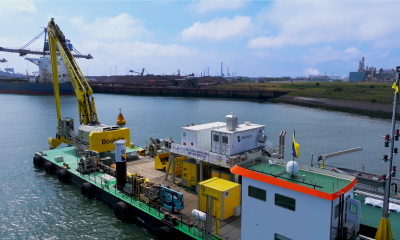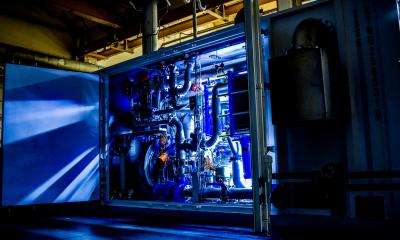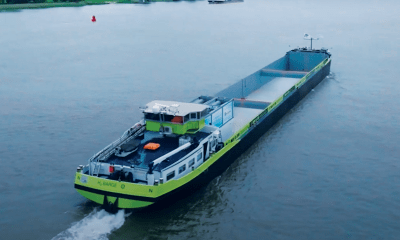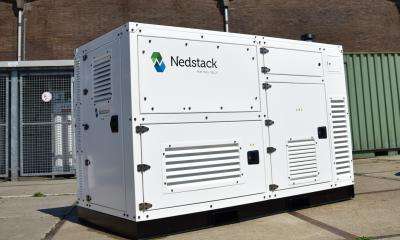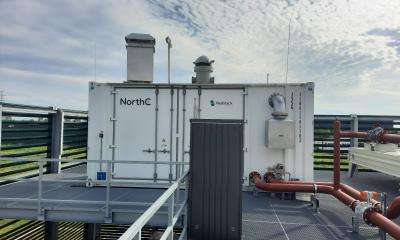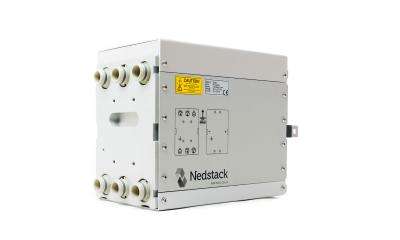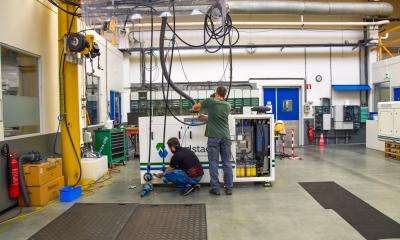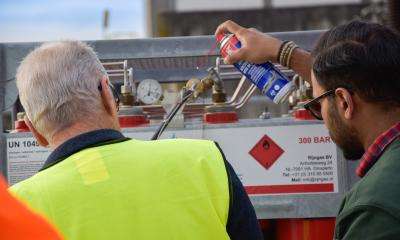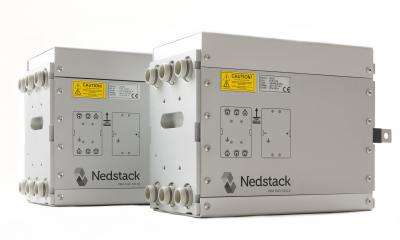As the IMO sets new targets for reducing greenhouse gas emissions from the maritime industry, within this strategy, the global industry are striving for a 30% reduction in annual GHG emissions by 2030 and a 80% reduction by 2040. Moreover, the strategy aims achieving a net-zero emissions by 2050.
In pursuit of achieving net-zero shipping, the maritime industry demands solutions that go beyond just environmental responsibility. They require solutions that offer high power profiles for both propulsion and hotel load. However, PEM fuel cell technology not only offers high power solutions but also brings other beneficial factors to the table.
- Zero Emission: By utilizing hydrogen as a fuel, our PEM fuel cell technology enables ships to navigate with zero carbon emissions, contributing to the reduction of greenhouse gas emissions in the maritime sector.
- Efficiency and Performance: PEM fuel cells offer high energy conversion efficiency, ensuring optimal performance while minimizing energy waste. This efficiency translates into increased range and operational capabilities for ships, reducing the reliance on fossil fuels and enhancing their overall environmental footprint.
- Versatility: PEM Fuel Cells are versatile and can be integrated into various types of vessels, including cargo ships, ferries, and yachts. This adaptability allows for a broad application of fuel cell technology across the shipping industry, accelerating the adoption of sustainable practices.
- Silent: PEM fuel cells are silent in comparison to traditional combustion engines. Reducing noise pollution will have additional environmental impact and social benefits.
- Flexible: Due to the fact, that PEM fuel cells operate at a low temperature, the system can be started quickly and handle dynamic load demands more easily.
The Ports & Maritime sector presents a realm of limitless possibilities for fuel cell applications. In numerous scenarios, the synergy of hydrogen as an energy vector and fuel cells as an unparalleled power conversion method emerges as the optimal zero-emissions solution. This dynamic pairing finds its prime as the superior choice across a spectrum of applications including:
- Ferries: Streamlining emissions-free water transport.
- Cruise ships (power at port and limited range): Enhancing port operations and shore power.
- Yachting: Elevating luxury experiences while treading lightly on the waters.
- Dredging: Revolutionizing eco-friendly maintenance of waterways.
- Power barges: Pioneering emissions-free power generation on the waves.
- Fishing barges: Ensuring sustainable fishing practices with minimal environmental impact.
- Inland navigation: Redefining inland water transport for a greener future.
In each of these instances, the harmonious fusion of hydrogen and fuel cells drives the maritime industry toward a horizon of uncompromised environmental responsibility and operational excellence.
Over the years Nedstack has proven a safe and reliable way to cut back on emissions. As can be seen that fuel cell technology is already in use for maritime applications. See below for Nedstack’s references in Maritime & Ports Domain.

Fundamental to adopting fuel cell technology in the maritime industry is to safeguard compliancy to the strict framework of IMO rules and addtional rules administered by Class Societies and flag states. At Nedstack we do not only observe the development of these standards, but try to actively involve in taking away such roadblocks to adopting much needed innovation. We help you understand the framework of applicable rules and - in absence of the IGF code Chapter E (IMO hydrogen rules) - help you along the way throught the alternative design process.
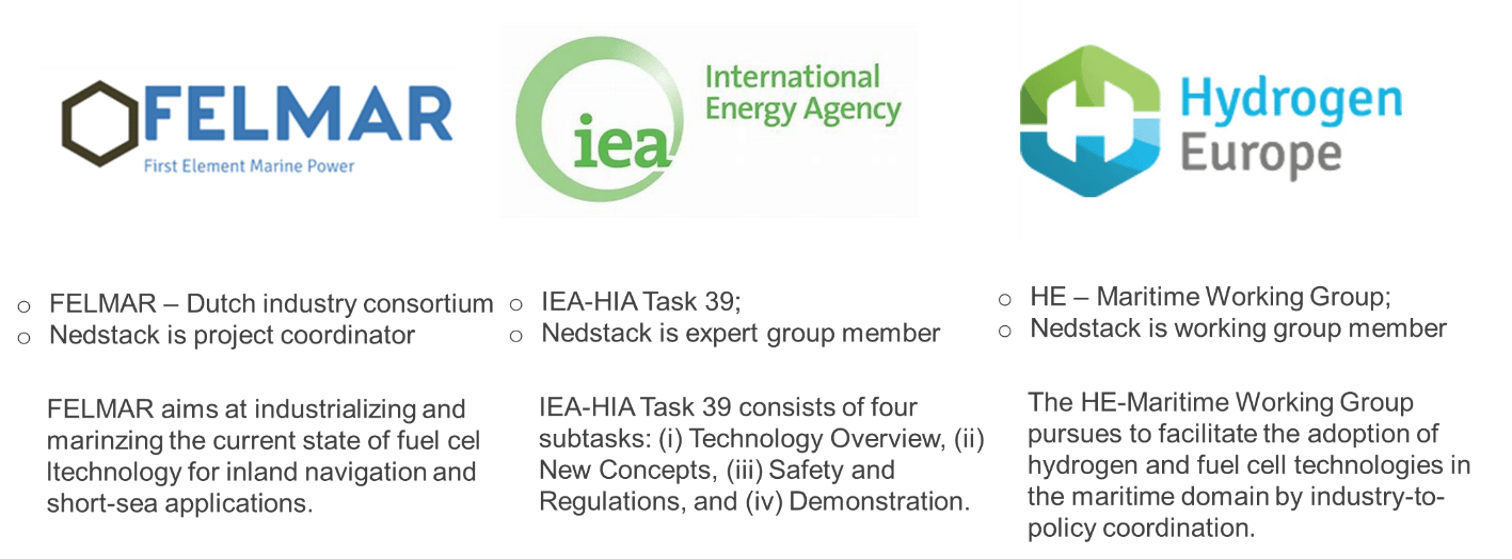
The Zero Emission Ship Technology Associations (ZESTAs) plays a crucial role as a partner for the maritime industry in promoting zero emission solutions. As an active participant during the MEPC80, ZESTAs contributed to discussions and initiatives aimed at reducing greenhouse gas emissions and promoting sustainable practices in international shipping
Nedstack was one of the founding members and currently chairs the organization, acknowledging the need for cooperation between all stakeholders in shipping to realise the IMO targets.

